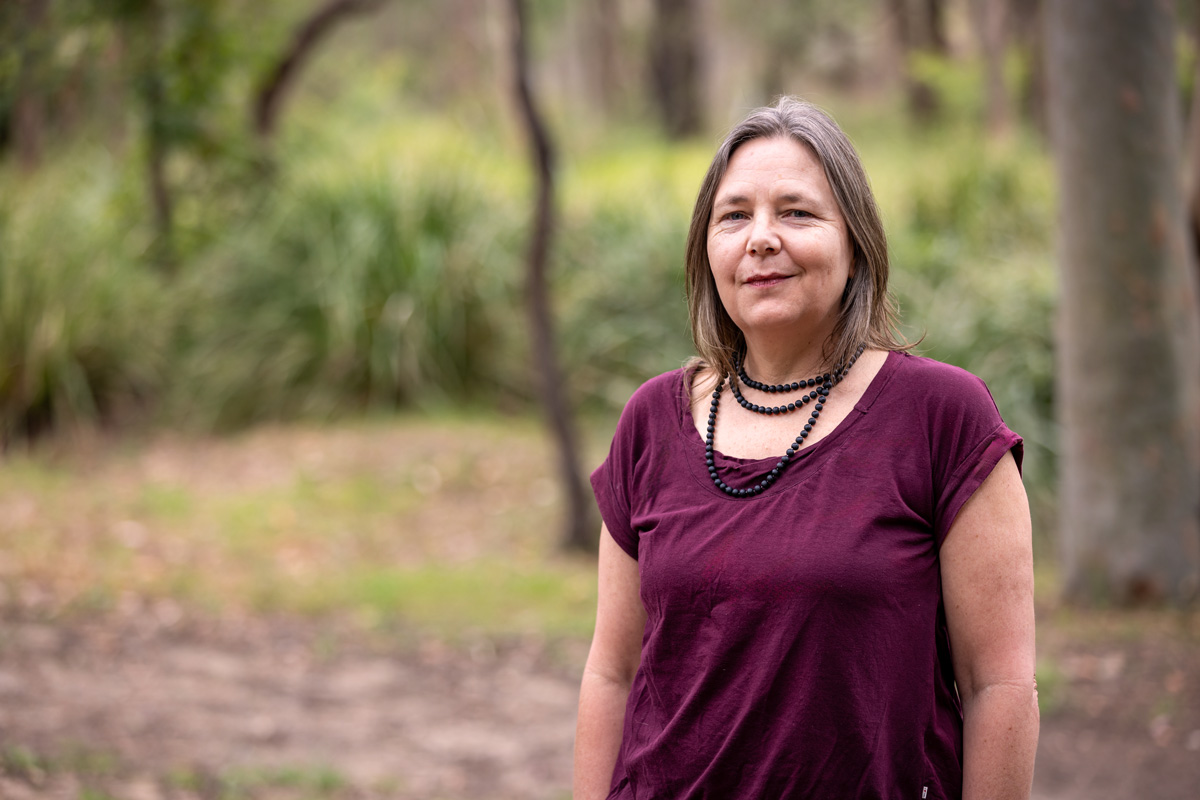Researcher Highlights
Helping promote humanised birth and reproductive justice
Dr Liz Newnham
Researcher Dr Liz Newnham is a thought leader in midwifery, currently drawing on care ethics to solve the escalating crisis of dehumanising birth practices. Her goal is to facilitate positive change in practice and experience.

Liz is a senior lecturer in midwifery. Her teaching and research interests centre on cultural and political aspects of birthing practice and the role of midwives in promoting physiological and humanised birth.
Under the umbrella of humanised birth, her key areas of study include the birth environment, midwifery practice to support physiology, birth technologies and informed consent/care ethics.
"My research addresses the systemic issues in maternity systems that lead to dehumanised care by investigating causes and identifying solutions to increase self-determination, equity and reproductive justice," she says.
"It's vital because, within these systems that are supposed to provide care for pregnant and birthing people, we're seeing increasing rates of birth trauma and postnatal mental health issues. And suicide is a leading cause of maternal death in Australia."
Her work has led to invited talks with global audiences. It's also attracted PhD students interested in advancing this work, and Liz is working with colleagues across Australia and worldwide on various projects.
Understanding physiological and humanised birth
If you speak to those who have given birth, many talk about some trauma or lack of control through the process. This is why Liz seeks to make humanised birth the norm.
Humanised birth brings together an awareness of the salutogenic (increasing wellness) effects of human labour physiology and an understanding of the socio-political influences on present-day birth culture and practice.
The complex process of childbirth brings many benefits to the birthing person and infant. Humanised birth attempts to preserve this and avoid unnecessary medical interventions that can switch off the necessary birth hormones.
Where intervention is necessary, it's still important to maximise physiology and also really vital that people have true self-determination over all decisions about what happens to their body in labour.
Humanised birth also emphasises the social, emotional and psychological aspects of childbirth. It recognises that birth isn't just a physical process. It's a deeply personal and transformative experience for women, their families and communities.
In a humanised birth approach, healthcare providers create a supportive and respectful environment that supports labour physiology and where the woman's choices and privacy are honoured.
A thesis of opportunities
Since publishing her PhD thesis, Liz has become a thought leader in the discussion on care ethics to solve the escalating crisis of dehumanising birth practices.
Titled 'An Ethnographic Study of Hospital Birth Culture', her thesis drew on critical medical anthropology, Foucauldian and feminist theory. It was published as a book, 'Towards the Humanisation of Birth' by Palgrave MacMillan, which was well received in the midwifery field and has led to a series of opportunities.
As a result of her PhD, she was involved in writing the first South Australian Perinatal Practice Guideline on pharmacological analgesia for labour and birth.
Based on her PhD and subsequent book, she was also asked to curate and co-write an article series in practice journal The Practicing Midwife, which was popular with clinicians and later released as an e-book.
Liz has also been interviewed for several podcasts, including the Contractions Podcast, Care Ethics Research Consortium, Making a Midwife and Through the Pinard.
Inspired by the politics of birth
Already a midwife, Liz was drawn to research after completing her honours thesis in Politics (A Foucauldian Genealogy of Australian Midwifery).
"My thesis piqued my research interest, and I started a PhD in Midwifery looking at hospital birth culture, using epidural analgesia as an avenue of exploration. I again drew on Foucault, as well as feminism and critical medical anthropology."
As with all research, the findings led to new questions that took her in the direction of informed consent and care ethics.
It also threw up questions around how knowledge about birth is created and recreated—what Foucault terms 'discourses' —how these affect midwifery practice and how women and birthing people make decisions about their bodies.
In a recent keynote presentation, she draws together her body of work in this area into a political philosophy of birth.
The grassroots of her success
Liz is grateful for her interdisciplinary collaborations in sociology, philosophy and care ethics in helping her pursue her ultimate research goal: developing midwifery theory to effect practical and concrete changes in clinical practice. And she continues to nurture them.
She's also driven by the needs of those whose experience is central to this work, including midwives and birthing people.
This includes actively engaging with the Australian College of Midwives (the peak body for midwives in Australia), liaising with consumer groups and drawing on her own experiences of being a midwife, mother and grandmother.
She's keen to incorporate more grassroots engagement into future projects.
Language and life purpose
Like many researchers, what makes Liz most proud about her work is that she can use her strengths to make a tangible difference.
She often receives feedback from people who say that her research has changed their perspective and given them language to describe the issues they face in clinical practice.
She's also challenged and inspired daily by intellectual curiosity and creativity.
"Being able to use my expertise and academic skills to attend to real-world problems brings a sense of life purpose."
She's convinced of the need to develop theoretical and qualitative expertise in health professions, such as midwifery, to complement and explain quantitative and clinical research.
Ultimately, she hopes that the midwives and students she has inspired get to make a difference in women and birthing people's lives every day.
The University of Newcastle acknowledges the traditional custodians of the lands within our footprint areas: Awabakal, Darkinjung, Biripai, Worimi, Wonnarua, and Eora Nations. We also pay respect to the wisdom of our Elders past and present.
